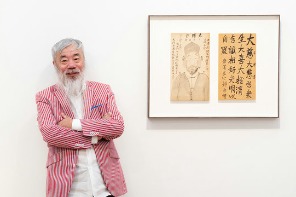Writer delves into home truths


In this essay that the writer spent eight months completing, Shen Shuzhi reveals the imperfect sides of herself and her family, which gave her a deeper understanding of family bonds.
"I wrote this piece because I felt painful. Unless I write it down, I can't write anything else," she says.
"If you can't truly write about the more real and painful parts of your life but the brighter things that you're very used to writing about, it feels like a kind of evasion and deception.
"I must write down the present, so as not to betray the place where I grew up and my parents."
For people who leave for school or work, hometown, even if unchanged over the years, is a place one can never really return to.
As Shen Shuzhi writes in the essay, several times in a year, she would take her son back home to live for a while. Even if she physically lived in the old village, she knew that, "I am a person who now lives in my hometown but whose only connection to it lies in the past".
Shen Shuzhi found similar feelings in the essay by US writer James Wood, Secular Homelessness, who writes that he left home twice, once for university, and then for the US where he had been living with his wife for many years.
"What is peculiar, even a little bitter, about living for so many years away from the country of my birth is the slow revelation that I made a large choice many years ago that did not resemble a large choice at the time; that it has taken years for me to see this; and that this process of retrospective comprehension in fact constitutes a life — is indeed how life is lived."
At the end of the essay, Shen Shuzhi also writes that people were unaware that their journey from village school to out-of-province university was a gradual farewell, and that leaving meant they could never return to how things once were.
"Now, within each cycle of return and departure, we felt the alienation, comfort, loneliness, incompleteness, and sorrow. In our own ways, doing what we can, perhaps including recording these moments, we can complete a part of our lives," she writes.





































